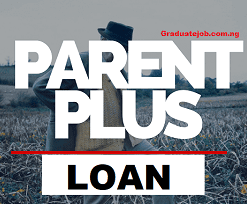Do you know how Student Loans Work? If the answer is NO! then you would want to get a great insight into how student loans work for the smooth run of your academic.
To take out a student loan to attend college or graduate school in the United States is a big financial decision. You will have to pay back your loans for years to come, so it is essential to compare your loan options and find one that works best for your needs.
To help you navigate the confusion, we need to put together an overview of how student loans work. Keep reading about how to get a student loan as a first-time borrower, how student loan interest works and more.
READ MORE: 11 Questions To Ask Before Refinancing Your Student Loans
What Is The Student Loan?
This student loan is the kind of instalment loan designed to help students pay for education. When you have a student loan, your lender typically will send the money directly to your school.
Your school in the U.S. will apply the funds to tuition, fees, 4oom and board and other eligible expenses that are specified during the application process.
When there is leftover money, it can be returned to you so you can use it for books, supplies and living expenses accordingly (make sure you check with the school to confirm the policies).
Student loans are not free money, you have to pay them back with interest. Interest is the cost to borrow a loan and it accrues at a fixed or variable rate. Those lenders will charge disbursement or origination fees on a student loan.
What You Can Spend Student Loan On?
You can spend the student loan money on education costs when you study in the United States and your school will need to certify your loan amount. These costs will vary from one school to the next, but they can include:
- Tuition and fees.
- Housing.
- Meal plans and groceries
- Books laptops and other supplies.
- Transportation.
You can also use the student loan to cover your daily living expenses but it will create a budget and only borrow what you need.
How Does The Student Loan Interest Work?
If you are an international student you are not eligible for loans through the U.S. government but you can explore private lenders.
Most private student loans begin accruing interest from the day the funds are disbursed to your school.
For instance, you borrowed US $30,000 at a 13.99% interest rate. For a 10-year repayment period, your monthly payment will be US $466 and you will have to pay a total of US $25,874 as an interest charge.
Remember that when you choose a lender like the MPOWER that will allow for interest-only payments that will school in that payment will be less.
When you start to pay back your loans, a portion of your payment will be applied to interest charges and a portion will pay the principal balance.
Maybe you can afford to make the extra payments, you can pay off your loan faster. Which means you pay less interest over the lifetime of your loan. When you plan to pay off your loan early, you will find a lender that doesn’t have prepayment.
The important item to consider is whether you want the loan with a fixed interest rate or the variable interest rate. Some student loans can be fixed with interest rates that will stay the same over the life of your loan.
Others can be with variable rates that will start lower than fixed rates but can increase sometimes.
READ MORE: Best Travel Insurance For Students Studying Abroad
How Do You Pay Back The Student Loan?
The instalment loans and student loans require monthly repayment. You can get the student loan bill every month for the duration of your repayment period.
The common repayment period for student loans is 10 years and you can have alternative options when you borrow that depend on your lender and terms.
Repayment, when you are in school, varies by the lender. Some lender has a grace period on student loans which means you don’t pay them back when you are enrolled in school or for a few months after you graduate.
When the grace elapses, you will stay to make full payments monthly. Others have an interest-only repayment period, meaning you can make payments on the interest during a certain period like while you are still in school.
Have it in mind that the less you pay for the loan while you are in school, the larger your debt will be on your graduation day.
You can usually set up automatic payments for the loans, to give your lender permission to withdraw payments from the bank account every month on or before the deadline.
Some lenders offer an interest rate discount to set up an autopay. For instance, MPOWER offers you a discount of 0.25% for setting up autopay.
READ MORE: Does Refinancing Students Loans Hurt Your Credit
Conclusion
The main way to receive student loans or related benefits is through the federal government. Moreover, the government’s loan program is limited and caps, meaning that sok3 students will need financial aid from the private market. For this sector provides a wide range of options.






